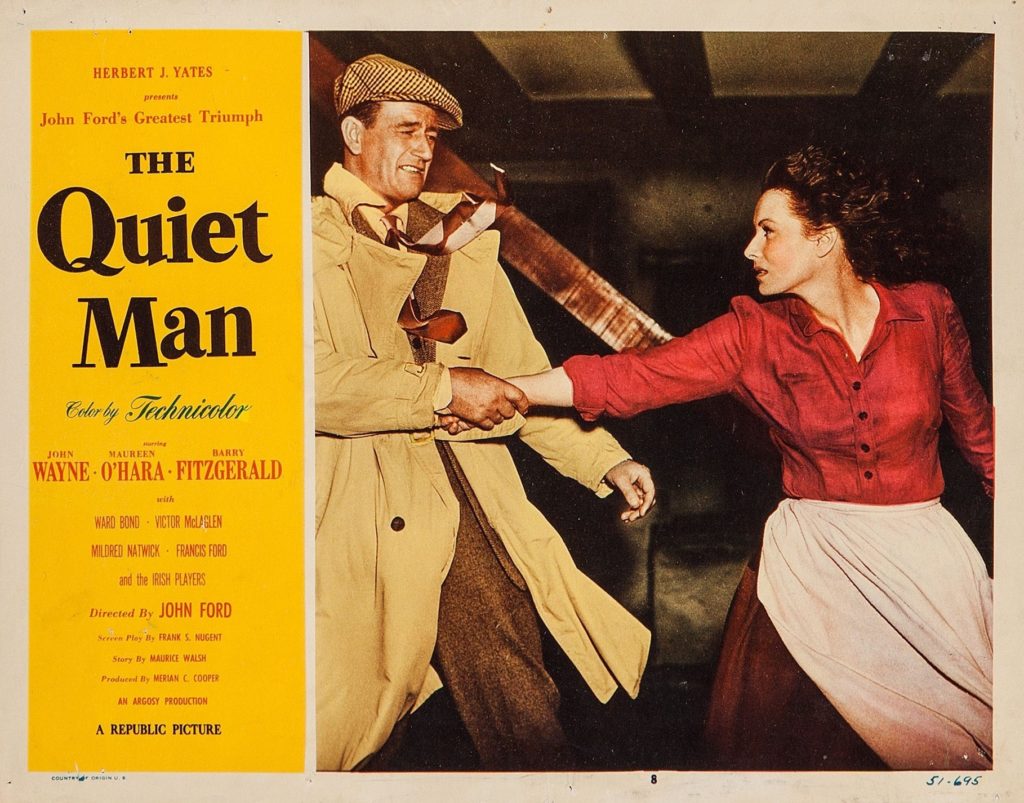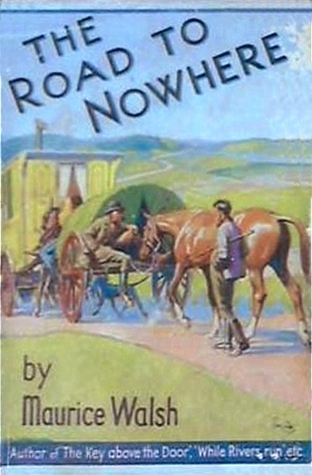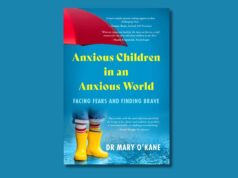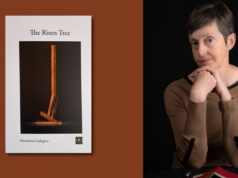
A lost legend of Irish literature—Maurice Walsh and ephemeral fame
Tony Canavan
Maurice Walsh (1879–1964) is now best known for his short story ‘The Quiet Man’, which was made into an Oscar-winning film, directed by John Ford and starring John Wayne and Maureen O’Hara. In the 1930s he was one of Ireland’s best-selling authors, and even had Ernest Hemmingway as a fan. He wrote twenty novels and a large number of short stories, many set in Scotland or the west of Ireland, reflecting a rural ideal that was fast disappearing. His novels were immensely popular, being translated into Italian, Danish, French, German and Flemish. Walsh worked for Customs and Excise in Scotland, spending much of his time in the Highlands, monitoring whisky distilleries, and his writing emphasised the historic and cultural links between Ireland and Scotland. In 1922 he transferred to the excise service of the newly formed Irish Free State and moved to Dublin. Walsh was an ardent supporter of the new state and dismayed at Irishman killing Irishman in the Civil War.
I have to say that I am a fan (and have written about his films for Books Ireland). I think Walsh is an outstanding prose writer. While in some ways he could be compared to John Buchan in the evocation of landscape and rural life, Walsh’s novels have thoughtful, slow-moving plots. His characters are complex and often consumed with moral doubts. His interlinking stories, Green Rushes, portrays the Irish War of Independence in a nuanced way. The IRA are not all untarnished heroes and there is a certain sympathy for the British soldiers forced to fight a dirty war. I recently reread The Road to Nowhere and was left wondering why Walsh is largely forgotten by the reading public today.
One reason may be that Walsh did not write adventure stories as such. His heroes do have adventures but they are not the kind that involve car chases or gunfights. Walsh’s heroes face moral dilemmas rather than international conspiracies. Often his books are explorations of what it means to be a man, rather than how to be a hero. They are usually love stories, romances for men that women could enjoy too. In the tradition of romantic novels, the path to love is strewn with difficulties. Sometimes it is a mutual dislike at first meeting; at others, it is some issue that means the hero cannot follow his heart.

The Road to Nowhere is a good example. The main protagonist, Rogan Stewart, at first dislikes the woman Elspeth Trant, but then falls in love with her. This is complicated by the fact, firstly, that she is married, and then that Rogan is implicated in the murder of her husband. Walsh’s solution to this dilemma is to send Rogan off on a year-long trek through the west of Ireland with a band of travelling people. The main purpose is for Rogan to re-evaluate his life and overcome an earlier tragedy. Fate—of course—brings his path again across that of Elspeth’s and the true identity of the murderer. In all this, apart from one massive fist fight between Rogan and the novel’s villain, there is little in the way of excitement or action. There are poetic descriptions of the Irish countryside, bucolic pictures of life on the road, and serious discussions between the characters about ethics and morals, seasoned with much whimsy. I imagine that such a synopsis pitched to an agent today would scarcely be given any consideration.
Walsh’s women are more modern than one may expect. They are, of course, beautiful and often rich, but they are also intelligent, strong-willed and faced with their own moral dilemmas. Elspeth Trant, for example, wrestles with what is the honourable thing to do when married to the wrong man, and, subsequently, what is the right course of action when you suspect that a good man has murdered your unworthy husband. Despite this, there is a certain tendency to idealise the women, and there is usually some fault, such as haughtiness or vanity, that the hero must cure her of before she can be truly happy.
While this falling between two stools, as it were—adventure and romance—may explain why Walsh is almost forgotten today, I suspect the real reason has more to do with style. I think Walsh writes some beautiful prose but he has a tendency towards formality of expression that jars on the modern ear. Even a fan like myself finds it hard to swallow sentences like: ‘After all, she was only a girl, a girl dowered dangerously in a half-strange land; not very wise, not all sophisticated, and with a great urge to own her own soul …’. And I find it hard to believe that even in the 1930s people really addressed each other as ‘My dark lady’ or ‘Woman-of-the-house’. This extends to their names also. I assume that Walsh was aiming for something romantic and grand but names such as Elspeth, Alsuin, Eudmon or Rogan just don’t sound authentic. Ultimately, I think this style makes Walsh’s writing sound affected and stilted to the modern reader, rendering his novels unreadable to many.
***
Tony Canavan,
Consultant Editor, Books Ireland












